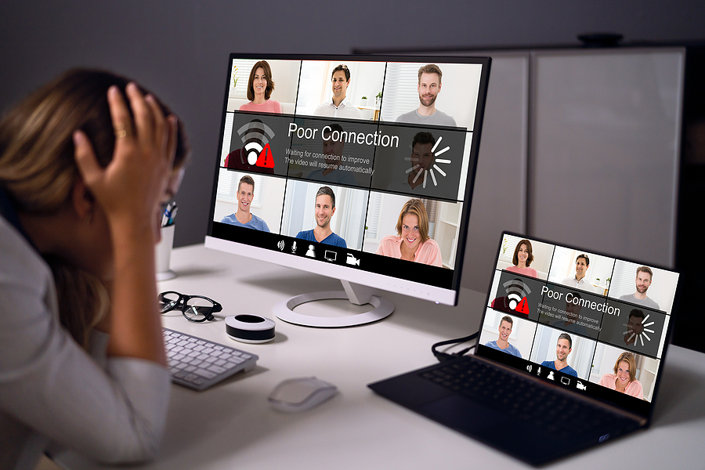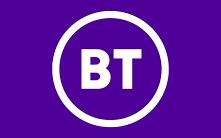 Nothing is as important to the modern internet user as the state of their provider. Choosing the right broadband for your needs can be the difference between getting the ‘wheel of death’ sign of buffering every time you load up your favourite streaming service and thinks working smoothy and easily. More and more of the products that we buy, from light bulbs to speakers, need to be connected to the internet in order to work to the best of their ability. Having the fastest broadband that you can will allow you to get the most out of such things.
Nothing is as important to the modern internet user as the state of their provider. Choosing the right broadband for your needs can be the difference between getting the ‘wheel of death’ sign of buffering every time you load up your favourite streaming service and thinks working smoothy and easily. More and more of the products that we buy, from light bulbs to speakers, need to be connected to the internet in order to work to the best of their ability. Having the fastest broadband that you can will allow you to get the most out of such things.
The increase in people working from home has led most broadband providers to realise that there are new customers to be won over if only they can find a deal that will appeal to the wallets and purses of people up and down the country. That means that there are all sorts of excellent deals to be found if you know where to look and you have an idea of what it is that you’re looking for. You don’t want to overpay for your broadband if you don’t have to, but it is equally as rubbish to end up without the right speeds and service.
Shops With Broadband Offers
Broadband Buying Guide

Choosing the right broadband package can feel like a truly daunting task, not least of all because of the sheer number of offers that are out there. Just looking at one provider can see you have to wade through any number of different deals and packages, which can lead some people to feel completely overwhelmed. Just as a brief example, do you want to opt for fibre-optic broadband or an ADSL option? Do you even understand the difference? That is the sort of thing that you need to get your head around before even thinking about speeds.
The most important thing that you’ll want to do before you even begin looking at the packages that are available is to figure out how much internet you actually use. When you buy a mobile phone contract, for example, you will doubtless consider how much data you tend to use on a monthly basis so that you don’t get caught short. The same thing is true when it comes to deciding on a broadband package, with download limits likely to cause a problem if you’re a heavy user but aren’t on a package that will allow you to behave as such.
What to Look For
When you sit down to consider the type of broadband deal that you think is right for you, you’ll want to consider all of the following:
- Fibre-Optic or ADSL?
- What Speeds Will You Need?
- Download Limits
- The Length of the Contract
- Can You Get Anything Else?
We’ll look at each of those sections in more detail here because they’re very much the sort of thing that you’ll have to weigh up if you want to ensure that you get a deal that is right for you. The ‘right for you’ idea is probably the most important, given that people that are mainly using their internet to send emails and browse the web won’t need the same level of broadband as someone that is constantly gaming, has a smart doorbell, five smart speakers and watches everything online courtesy of streaming platforms.
Fibre-Optic v ADSL
There are effectively two types of broadband: the type that comes via your phone line and uses copper wiring, which is ADSL, and the type that takes advantage of thin fibres that can transfer data at a much quicker rate. Which one is suitable for your will be based largely on what you’re planning on using the internet for, with ADSL generally much slower and simpler than fibre-optic broadband. As a result, people that are only really interested in sending the odd email and browsing a few websites will be fine with ADSL.
Fibre-optic, on the other hand, is much quicker and can handle a much faster load. It is significantly more advanced and can therefore offer significantly faster speeds, which can be vital for certain people in terms of how they plan to use their internet in their home. If you’re looking to future-proof yourself then you’d do well to opt for fibre-optic broadband, but you might well be located in a part of the country where that is not an option and so ADSL is the only choice available to you. Even so, it’s always worth thinking about.
The Fibre-Optic Rollout
In March of 2021, Ofcom announced that they would be looking to promote investment in fibre networks as well as increased competition for providers. Within the statement, it was revealed that some of the copper telephone network is more than 100 years old, showing why it’s so important to opt for fibre if you’re able to. The result of that is that the internet infrastructure in the United Kingdom needs to be upgraded, which is why it was decided that a fibre-optic rollout would be the most sensible approach to take.
Ofcom’s hope is that 70% of the country will soon have a choice of network providers, with Openreach committing to rolling out full fibre to 3.2 million homes in rural locations. The government is also aiming to help the rest of the country courtesy of public funding. Part of the way in which prices are looking to be kept down is courtesy of wholesale regulation, whilst British Telecoms’ rivals have been given better access to the underground ducts and telegraph poles needed to install fibre-optic broadband.
One thing that the rollout will mean is the slow closure of the copper network. Ofcom believes that it is unfair for Openreach to have to deal with the cost of two lines, so instead of that, the company will look to remove the old copper products over the years following the full installation of the fibre-optic lines. It will be done slowly in order to ensure that vulnerable customers are protected, but the important point as far as we’re concerned is that it means that it is probably worth steering clear of ADSL contracts if you can.
What Speeds Will You Need?
The speed of your internet is arguably the most important factor when it comes to deciding upon the package to get. Opt for too low a speed and suddenly you’ll be struggling to stream things from Netflix or the BBC iPlayer, becoming more and more frustrated as the spinning wheel of death hits your screen. Whilst you can’t exactly go too fast, you can pay for more speed than you actually need, which will cost you more money than is necessary in the long-term. The obvious question then becomes, how much speed do you need?
The answer comes from two locations:
- How many people live in your house?
- What will you be using the internet for?
In terms of the number of people living with you, the general rule of thumb is that the more people there are, the faster you’ll need your internet to be. Each device connecting to the internet uses up some of the available speed and puts it under an increased amount of strain, meaning that everyone getting online at the same time will lead to connection and buffering problems. Opting for the fastest package you can afford if you’re in a full house of people will give you the best chance of having decent internet all of the time.
The next question is about what you use the internet for. The simple truth is that people who tend to use the internet for the likes of emailing and browsing won’t really need particularly fast speeds. A two-person household that is going to use the internet rarely will need significantly lower speeds than a family of four that plans to be gaming, streaming and hooking up smart devices like speakers and TVs. Even those that do plenty of streaming won’t necessarily need huge speeds unless they’re doing so in high-definition.
In truth, super fast speeds of about 30 Mbps will be unnecessary for most households and ultrafast, which reaches speeds in excess of 100 Mbps, will definitely be more than the majority if people will need. As a result, a package that offers speeds in the region of 10-15 Mbps will suffice for most, but that is dependent on how many people are going to be using the internet at any one time and what they’ll be using it for. It is definitely worth weighing that up before you being looking at the different packages on offer.
How to Test Your Speed
It is possible that you’ve read all of the above information and thought ‘what I’ve got now is fast enough, but how fast is it?’ Alternatively you might be thinking ‘I need faster than what I’ve got, but what have I got?’ As a result, one of the best things to do is to test your current speed in order to find out what you’ve currently got. It is also important to note that there is a difference between the speed that your provider gives you and the speed that you’ll be able to achieve if you’re operating via Wi-Fi, so bear that in mind.
In order to test the speed that you’re being provider by the company that you pay for your Wi-Fi, the best thing to do is to plug your computer directly into your router using an ethernet cable. Once you’ve done that, you can load up any number of different speed testing sites that will communicate with your computer in order to find out how fast your download and upload speeds are. You can also do the test without plugging into the router, but this will only give you your Wi-Fi speeds, which will be slower than the actual speeds you can get.
Broadband providers will talk about their ‘average speed’, but you need to bear in mind the fact that these speeds are only what 50% of their customers can get at peak times in order to be claimed as average speeds. Once you begin the process of signing up for a package with an Internet Service Provider, they will then let you know the likely speed that you’ll be able to receive once the internet is installed, which will depend on a large number of factors. As long as you can get fast enough speeds, that is the key thing to think about.
What Are Gbps & Mbps?
When you’re looking at your speeds, you’ll soon see that two phrases tend to be used: Mbps and Gbps. Mbps is a shortening of megabits per second, whilst Gbps means gigabits per second. With the average internet speed being about 10 Mbps, that means that your computer will download ten megabits of data in one second. A gigabit is ten times more than a megabit, so if you had speeds of 100 megabits per second or 1 gigabit per second, the latter would be the equivalent of 1,000 Mbps and significantly faster.
The vast majority of people simple won’t need gigabit internet. The sort of people that need to get gigabit internet are the ones that have four adults all working from home, all downloading huge files at the same time as they’re streaming content to a laptop and playing games online. Of course, getting the fastest internet speed that you can afford makes sense for all sorts of reasons, but doing so just for the sake of it isn’t worth it.
A good way of thinking about it is like a car. The SSC Tuatara can do 282.9 miles per hour, but the top legal speed in the United Kingdom is 70 miles per hour. What is the point in paying for a car that can do speeds that you’ll never legally be able to reach? It is all well and good having gigabit speed internet, but if the fastest that you’ll ever need it to do is 15 Mbps then you’re just wasting your money by paying for such incredible speeds.
Download Limits
When you sign up for a mobile phone contract, you know that you’ll get a certain amount of data to use during the course of your contract. Imagine that your mobile contract comes with 20 GB of data, this means that you can use social media, send emails, browse and stream until your 20 GB has been used up. The same sort of thing is true with ISPs, who install a download limit on their broadband contracts that will stop you from being able to use the internet once all of your data has been used up.
The amount that you’ll be given will differ from provider to provider and even within the various contracts that they offer. This is, perhaps, the second-most important factor after the speed of your internet because using up your download limit can leave you totally exposed. Every bit of information that goes to online devices uses up data, with some using more than others. Streaming a move in 4K, for example, will use about 15 GB, so it’s worth thinking about how often you’re likely to do that during the course of a month.
Research suggests that the average UK household used 240 GB in 2018. In the three years since, the prevalence of the likes of UHD content on Netflix, BBC iPlayer and Amazon Prime is likely to have seen that shoot up even higher. Add in the use of smart speakers and all of a sudden it’s pretty clear that a low download limit will leave you without the use of the internet pretty quickly in an internet-heavy house. It is why looking for deals that offer unlimited downloads might well be a sensible move for many.
The Length of the Contract
The next thing that is worth weighing up when you try to decide on your internet package is how long the contract lasts for. This might seem like a relatively unimportant thing, but being locked into a contract for two years when your internet speeds aren’t good enough can result in a feeling of desperation when your can’t stream your favourite shows or download that document that work sent through. It is now fairly typical for a company to offer 24 month contracts, but is that the right thing for you to opt for?
On the flip side of that, if you’re reasonably confident that you’re going to be happy with the internet that you get then you will doubtless be happy to sign up to as long a contract as possible. Don’t forget, however, that this will preclude you from being able to take advantage of decent offers when Black Friday 2022 rolls around. Equally, signing up for a one-month rolling contract might seem sensible when you first sign up to give you a chance to check out how good the internet is, but if you do so you will be paying over the odds for the pleasure.
Can You Get Anything Else?
More and more broadband providers offer much more than just access to the internet. It is not uncommon, for example, for Sky to offer packages that include broadband internet in addition to a TV package. If you love watching Succession, say, then it might be worth your while to see if you can get a brilliant deal that includes an Entertainment Pass alongside your broadband. Similarly, sports lovers will be keen to get a sports deal added to their internet package when signing up to save them money.
There are some packages that offer Fibre To The Property deals, meaning that you don’t need to connect to the local exchange in order to get your internet. Instead, the fibre cables literally run right up to your property and you’ll be able to get lightning fast deals. This sort of thing is typically offered to new-build properties rather than older ones, but it is being rolled out generally. If you need to get your internet from the exchange then the likelihood is that it will come over your phone line, meaning a phone package can be rolled in with your internet usage.



